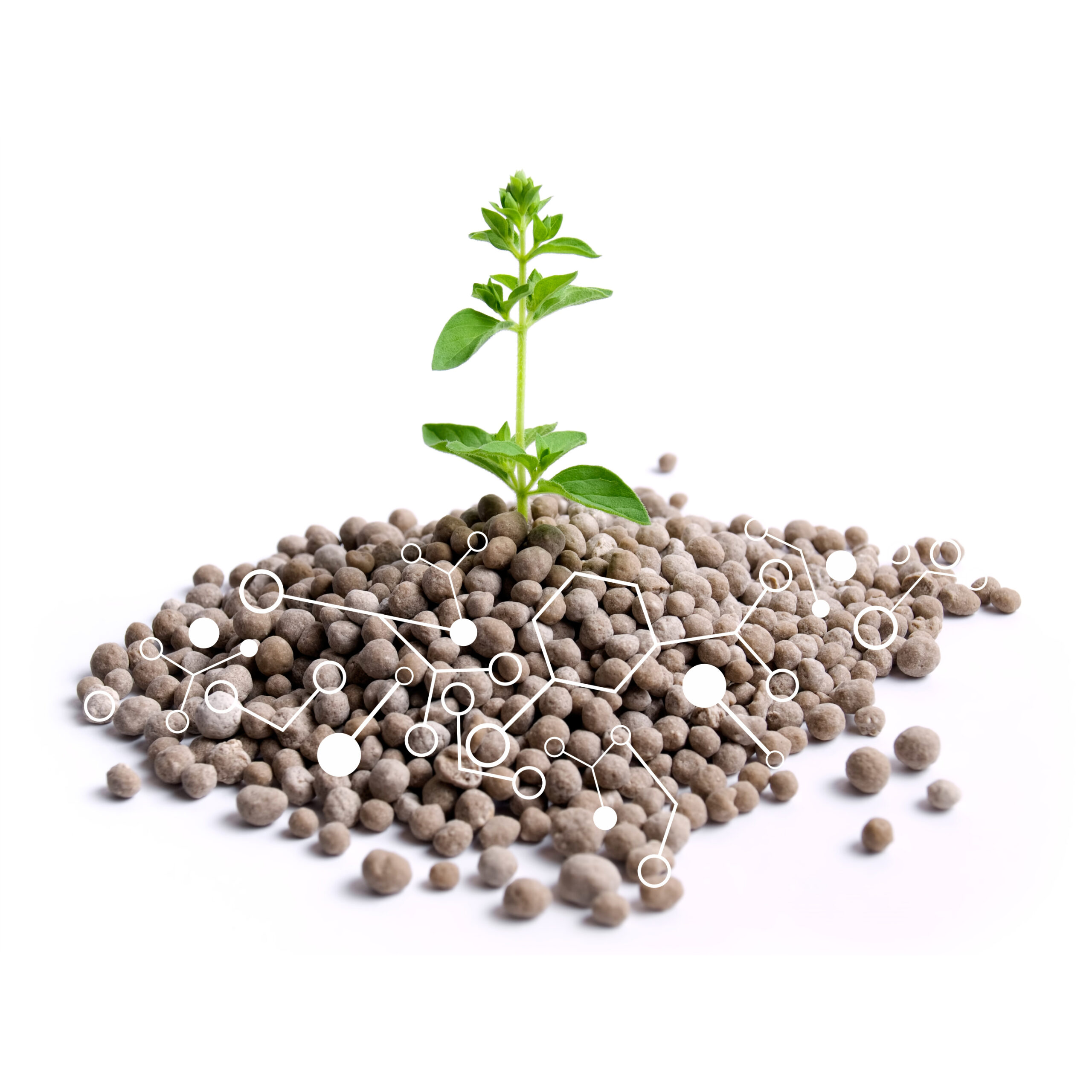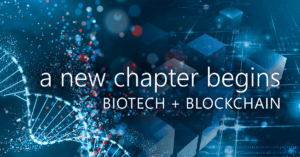
Project Aims to Prevent Fertilizer Adulteration and Secure Supply Chains to Global Farming Industry; Company Anticipates Initial Shipments to Begin in Early 2018
STONY BROOK, N.Y. and MOUSTIER, BE., August 8, 2017. Applied DNA Sciences, Inc. (“Applied DNA”, “the Company”, NASDAQ: APDN), announced the introduction of its molecular tag to the fertilizer industry in co-operation with Rosier S.A., a mineral fertilizer manufacturer based in Moustier, Belgium. Rosier sells high quality mineral fertilizers globally, and in Europe, through its exclusive distributor, Borealis LAT.
In September 2016, Applied DNA and Rosier launched a pilot to DNA-tag fertilizer pellets in order to detect the dilution of genuine fertilizer with sub-standard material within a given batch, and to be able to trace the batch to its original manufacturing location. Since the initiation of this study, the Company, in partnership with Rosier, has effectively marked fertilizer pellets and has successfully authenticated and detected the dilution of fertilizer with unmarked material in a variety of laboratory and in-field tests over a nine-month period.
A marked shipment of fertilizer has travelled through the supply chain in West Africa and pellets have been analyzed in the field utilizing Applied DNA’s in-field DNA detection technology (SigNify® IF) to provide definitive real-time authentication of the SigNature® DNA marks, ensuring that the fertilizer had not been adulterated with unmarked material. The pellets tested were proven to be genuine and demonstration of the technology gained further support for the use of molecular taggants to combat counterfeiting and to aid the many countries that are affected by adulterated fertilizer.
Adulterated fertilizer is recognized as a global problem. The Vietnam Fertilizer Association estimates that substandard fertilizer costs the country’s economy $2 billion dollars a year. In addition, 1,000 metric tons are seized annually for quality violations (1). In Uganda, a blind test revealed that urea on sale to farmers contained 33 percent less nitrogen than advertised (2) and in Tanzania, an estimated 40 percent of fertilizers are believed to be fakes (3).Tony Benson, managing director of Applied DNA Europe, stated: “Adulterated fertilizers have become a global supply chain problem of such impact, that bankers will no longer finance fertilizer purchases for some farmers. Without these necessary funds, farmers cannot purchase fertilizer, leading to poor or failing crop yields, and financial disaster for the farmer. Regional banks expressed a willingness to finance DNA-tagged fertilizers in the future, and praised our in-country demonstrations of the power of molecular tags to protect fertilizer supply chains against dilution.”
Without appropriate restoration of the organic and mineral content of depleted soils, farmers often clear new land, contributing to the global deforestation problem. By improving the quality of arable land, farmers can turn less to deforestation, which represents as much as 30% of global greenhouse emissions. Africa, with a huge agricultural potential, uses less than 15 kgs of fertilizer per hectare, only a tenth of the global average. As a result, 75 percent of African soils are degraded, costing the continent $4 billion per year (4). FAO (Food and Agricultural Organization of the United Nations) forecasts the global fertilizer demand to be 199 million metric tons in 2019 (5).Dr. James Hayward, president and CEO of Applied DNA, stated: “The total addressable market for our platform in fertilizer is substantial, but well within our scalable capacity for global commercial ecosystems. Our manufacturing partner, Rosier, is well established, committed and familiar with the markets that will first pull our platform through fertilizer supply chains. We expect to identify initial customers and begin shipments of fertilizer with molecular tags in early 2018. We believe this is one of the most significant steps the global economy can take toward sustainable agronomy. Farming land where nutrient supplementation is in equilibrium with depletion by farming, will help to prevent deforestation.”
Willy Raymaekers, President and CEO of Rosier, stated: “We are very satisfied with the initial results of our co-operation with Applied DNA and are currently defining the next steps for further broadening the implementation of this innovative concept.”
About Applied DNA Sciences
Applied DNA is a provider of molecular technologies that enable supply chain security, anti-counterfeiting and anti-theft technology, product genotyping and DNA mass production for diagnostics and therapeutics.
We make life real and safe by providing innovative, molecular-based technology solutions and services that can help protect products, brands, entire supply chains, and intellectual property of companies, governments and consumers from theft, counterfeiting, fraud and diversion. The proprietary DNA-based “CertainT™” platform can be used to identify, tag, test, and track products, to help assure authenticity, origin, traceability, sustainability and quality of products.
SigNature® DNA describes the core technology ingredient that is at the heart of a family of uncopyable, security and authentication solutions such as SigNature® T and fiberTyping®, targeted toward textiles and apparel, BackTrac™ and DNAnet®, for anti-theft and loss prevention, and digitalDNA®, providing powerful track-and-trace. All provide a forensic chain of evidence, and can be used to prosecute perpetrators. Applied DNA Sciences is also engaged in the large-scale production of specific DNA sequences using the polymerase chain reaction.
Visit adnas.com for more information. Follow us on Twitter and LinkedIn. Join our mailing list.
The Company’s common stock is listed on NASDAQ under the symbol APDN, and its warrants are listed under the symbol APDNW.
About Rosier SA
Rosier produces and sells high quality mineral fertilizers in Europe, through its exclusive distributor Borealis LAT , and outside Europe to serve its customers in the most reliable way. We provide farmers with suitable fertilizers considering individual crop and soil conditions. Embedded in the Base Chemicals business of Borealis, our aim is to strengthen our position in selected markets worldwide. With a highly motivated and professional team, we are close to our customers in agriculture. Our backward and forward integration result in supply security as well as high product and service standards.
Thanks to perfectly adapted and state-of-the-art industrial facilities, Rosier is able to offer environmentally friendly products that provide users with the best economical yield they can get. The ROSAFERT® range primarily comprises simple and compound PK and NPK granulated fertilizers; Specialty fertilisers from the ROSALIQ® and ROSASOL® ranges are essentially designed for the greenhouse, foliar complementary nutrition or fertirrigation markets.
- https://www.vietmaz.com/2016/06/fake-substandard-fertilizers-on-the-rise-in-vietnam/
- https://www.theguardian.com/global-development-professionals-network/2015/aug/05/dodgy-fertiliser-is-keeping-uganda-hungry
- http://www.thecitizen.co.tz/magazine/businessweek/40pc-of-fertilisers-fake–study/-/1843772/3120846/-/61ibdez/-/index.html
- http://community.businessfightspoverty.org/profiles/blogs/kapil-mehan-breakthroughs-in-fertilizer-can-unlock-the-riches-in-
- http://www.fertilizer.org/imis20/images/Library_Downloads/2016%20Global%20nitrogen%20fertiliser%20demand%20and%20supply.pdf?WebsiteKey=411e9724-4bda-422f-abfc-8152ed74f306&=404%3bhttp%3a%2f%2fwww.fertilizer.org%3a80%2fen%2fimages%2fLibrary_Downloads%2f2016+Global+nitrogen+fertiliser+demand+and+supply.pdf
Forward-Looking Statements
The statements made by Applied DNA in this press release may be “forward-looking” in nature within the meaning of the Private Securities Litigation Act of 1995. Forward-looking statements describe Applied DNA’s future plans, projections, strategies and expectations, and are based on assumptions and involve a number of risks and uncertainties, many of which are beyond the control of APDN. Actual results could differ materially from those projected due to our short operating history, limited financial resources, limited market acceptance, market competition and various other factors detailed from time to time in Applied DNA’s SEC reports and filings, including our Annual Report on Form 10-K filed on December 6, 2016, and our subsequent quarterly reports on Form 10-Q filed on February 9, 2017, and May 11, 2017 which are available at www.sec.gov. Applied DNA undertakes no obligation to update publicly any forward-looking statements to reflect new information, events or circumstances after the date hereof to reflect the occurrence of unanticipated events, unless otherwise required by law.
Investor contact: Sanjay M. Hurry, LHA Investor Relations, 212-838-3777, shurry@lhai.com
media contact: Cheryl Schneider, Dian Griesel Int’l, 212-825-3210, cschneider@dgicomm.com
program contact: Tony Benson, Managing Director, Applied DNA Europe, 44 (0) 7552 429341 tony.benson@adnas.com
web: www.adnas.comwww.borealisgroup.comwww.rosier.eu
twitter: @APDN


